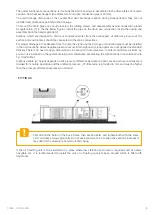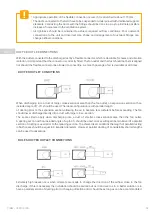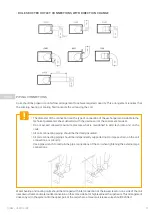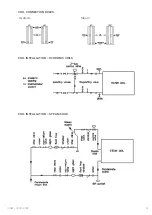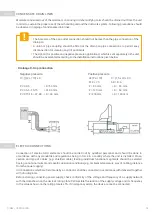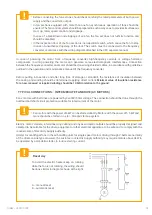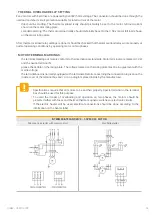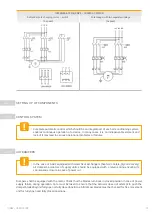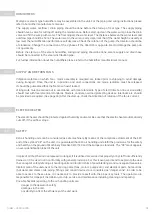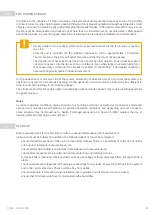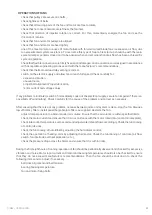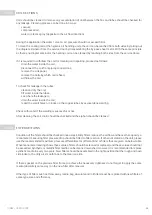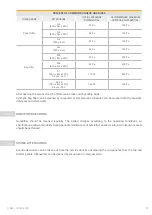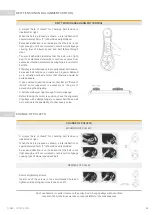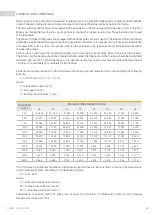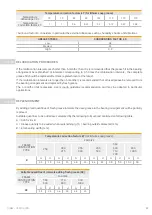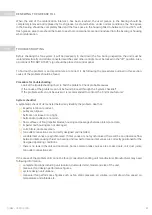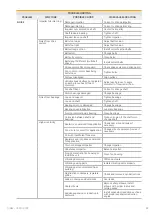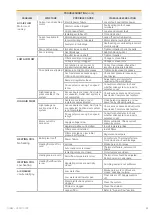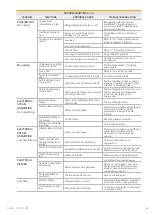
21
22
OIMM – VENTUS PRO
In addition to the dangers of rotation machinery, fans present another potential danger by virtue of their ability
to draw in loose material. Solid objects passing through a fan represent potentially dangerous projectiles. Solid
objects can cause fan failure by physically damaging the impeller blades. If the guard is removed for any reason,
the fan must be disconnected and locked out. Where fans are installed over an occupied area, safety guards
should be provided to prevent dropped objects from entering this area during installation and maintenance.
Before operating fans for the first time (or after an annual maintenance) the manufacturer’s
instructions must be followed. In addition, the following check list must be completed:
•
ensure that all the sections of the unit are thoroughly cleaned. There is a possibility of collection of debris
such as duct insulation materials, tapes, etc.,
•
ensure all electrical wiring is carried out in accordance with local standards,
•
ensure all components are provided with safety, protecting and isolating devices,
•
remove all filters, install low efficiency filters such as gauze bags or throw away type filters, to keep the filters
clean,
•
check water/steam/refrigerant coils and pipe connections for any leaks. Ensure that all the air in the system
and in the coil is vented out. Check coil face free from debris,
•
ensure all panels, if removed during installation, are in position and all service doors are closed,
•
ensure that minimum water level is maintained in the humidifier.
On the downstream or pressure side of the system, attempting to open the access door while the system is in
operation, may result in an explosive opening. On the upstream or suction side, the inflow may be sufficient to
draw in tools and clothing etc. and create a danger.
The stroboscopic effect of certain lights in combination with certain fan speeds may cause a rotating assembly
to appear stopped.
Noise
At normal operating conditions, noise emission of air handling units does not (with duct connections made and
service doors closed) exceed 70dB (A). At extreme operating conditions and depending on room acoustics,
noise emission may be dangerous for health. Prolonged exposure at or above 85 dB(A) requires the use of
hearing protection (ear plugs, ear muffs etc.).
THE HIDDEN DANGER
START UP
3.8.6
3.9
!
Access doors to a fan or duct system must not be opened when the fan is running or coasting
to a stop.
!
After the unit is switched off, the impeller continues to run for approximately 1-3 minutes.
The fan section is therefore still under pressure and the door must not be opened.
!
The impeller must never be slowed down by hand or by other objects. Power must be locked
out prior to access into the fan section or ductwork. Even when locked out electrically, fans
may cause injury or damage if the impeller is subject to “windmilling”. The impeller should be
secured to physically restrict rotational movement.
!

